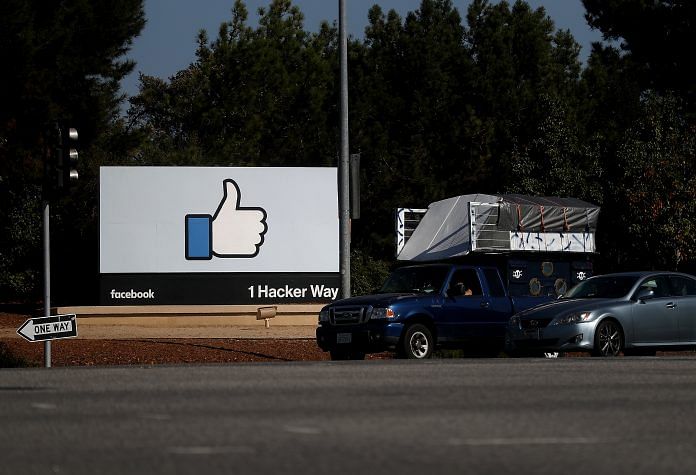James Harding in his scathing Hugh Cuddlip lecture speech talked about news being weaponised and how the state must take a stronger stand.
Former BBC director James Harding has weighed in on the recent data breach row, accusing Facebook of “weaponising news” and saying “technology is disrupting democracy”.
Delivering the 2018 Hugh Cuddlip lecture, held in memory of the late Welsh journalist, Harding also rued how social media was being used to spread propaganda and fake news.
His scathing speech came days after the revelation that a UK-based voter-profiling firm, Cambridge Analytica, had harvested millions of Facebook users’ personal details and allegedly used it to influence the 2016 US presidential election and the Brexit referendum. Cambridge Analytica, Harding said, was “a case study in the abuse of data for political ends”.
Here are five takeaways from Harding’s speech.
The internet distorting democracy
“Technology is disrupting democracy,” Harding said, pointing out how politics was changing in a digital world. He added that the onus was on individuals and the state to fix the situation before it was too late: “Whether it destroys it (democracy) is up to us.”
Though the internet has been a force of progress in giving everyone a voice and heralding movements like ‘Black Lives Matter’ and ‘Me Too’, Harding said it put journalists in the danger of becoming complacent.
“While we’re busy reporting the news every day, we may be missing the story,” he added.
The rise of authoritarianism
Harding said authoritarianism was on the rise across the world, and politicians were becoming less trustworthy and press freedom was being curtailed.
Though people think technology is neutral, it never is, he added. “It’s engineered by people and produced by companies: if they enable, either through indifference or incompetence, the poisoning of politics, the destruction of trust and the erosion of freedoms, then that’s a choice,” Harding said.
Citing as examples China President Xi Jinping, the United States’ Donald Trump, and Russia’s Vladamir Putin, and countries like Venezuela and Phillipines “where pseudo-democracies (are) taking hold”, Harding said the momentum was currently with the autocrats.
“Politics is more emotional, less factual, than before,” he added.
The weaponisation of news
The weaponisation of news to meet political ends had created a post-truth world, the former BBC chief said.
First, he pointed out, news had become a battle for attention and much noise. “The battle for attention rewards those politicians who can grab it – even if that means being sentimental, simplistic and loose with the truth,” he said.
Second, he pointed out the role of algorithms, adding that the algorithms and filters on digital platforms were not impartial. They show people what they would want to see or hear, rather than balancing out news, and create bubbles, he added.
“They drive us to extreme content, further into our communities and, ironically, out of touch with the other,” Harding said.
The third factor he drew attention to was data exploitation. Social media sites, he added, showed us what a politician could do with “a few million dollars, a bot factory and a sense of mischief”.
“We are witnessing the privatisation of personal data for use in politics – in other words, the tech companies, aided and abetted by the political parties, are exploiting privacy and the privilege of being private sector businesses to remake the public square,” he said.
Fourth, virality, aka clickbait. Harding said the digital world “rewards crap and punishes quality”.
A tech clash – a greater role for the state
Harding said a tech clash had begun, pointing out how citizens, tech companies, politicians and journalists all had a role to play in it.
He added that the world had “laboured under some myths for too long”: “One is that you can’t regulate the internet age because it’s international, abundant and fiendishly complex. Another is that the politicians will be out-foxed by the geeks. And a third is that the genie is out of the bottle, that Silicon Valley is too rich and powerful to be tamed.”
“This laissez-faire fatalism flies in the face of what we’re seeing in China, Turkey, Russia. Let’s not underestimate the power of the state,” Harding said, stressing the need of the state to step in.
The role of journalists
“If we want to do valuable journalism, we need to do less, better,” said Harding. The job of the journalist is to empower individuals and expose injustice. The people, Harding said, wanted a renewal of journalism and the media must listen to that. “The journalism that stands the test of time takes some time,” he emphasised.
Read the full speech by James Harding here.



